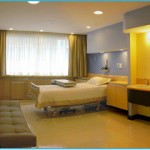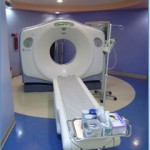Medical Tourism in Guatemala: Report on a Recent Emergency
Category: Health and Wellness Issues
By Billy and Akaisha Kaderli
U.S. has the best care in the world?
As an adult, I have been in the hospital overnight on five occasions for various health issues; Four times in the USA in different facilities and states, and once now in Guatemala. In three of those four times in the U.S. I had either poor results or negative outcomes. That’s 75% of my personal experiences with U.S. hospital care which have been unfavorable.
These events have ranged from little or no follow up from attending doctors once a procedure was completed, leaving me confused, concerned and on my own to figure things out, to the incorrect construction of a cast covering a broken wrist following a complicated surgery, to a four-night mega-bucks stay complete with a misdiagnosis. My confidence in the U.S. system is shaken.

A Guatemalan comparison
Recently I was admitted into Centro Medico, a private hospital in Guatemala City, for major abdominal pain and related issues. My local doctor in Panajachel recommended that I go to the hospital for better analysis and treatment of my condition after she examined me twice – once on a late night house call ($19.00) to my hotel room. Doctora Zulma arranged transportation and called the hospital ahead of time so that my admission was expected and things would run smoothly.
After a tortuous 3 hour twisting mountainous road trip at midnight, I arrived at the Emergency Room at 3 a.m. Once there the quality of care was top notch and professional. Due to my condition, a specialist was called in, he examined me and I had an x-ray taken. On his recommendation, by 5 in the morning I was admitted into a hospital room where I stayed two nights. During this time I saw this internal medicine specialist on six occasions, had another x-ray, a CT scan, several blood draws and was administered intravenous medications. Doctor Flores spoke English and was very thorough in answering my every question, explaining his findings and treatment. In the respectful typical Latin manner, he shook my hand both upon arriving and when leaving my room.

Resort care?
The nurses took time to explain to me what IV drip they were administering and to make sure I was comfortable. If I needed something, I asked and my request was quickly fulfilled. During this time, several other doctors came in to check on me to be sure I was not in pain and asked if I had any questions. Honestly, I felt like I was being taken care of in an upscale resort.
My semi-private room had a flat screen TV and was Wifi connected, and my room was cleaned two to three times per day. Fresh towels and hospital garb were given to me daily, my linens were changed each morning and I was offered a list of choices for meal periods. Each time someone entered my room, they called me by name.
Upon being released from hospital care, my lead doctor Flores gave me both his personal cell number as well as email address so that I could contact him in 10 days with an update on my condition.
Hospitality agents then came in to work with me on obtaining my medical bill (which I received in one hour), delivered my lab results, X-rays and CT scan for me to take home, and called a taxi to take me back to Panajachel. One agent had me take a survey regarding my care: on a scale of 0 to 10, how would I rate my overall stay? My Doctor? The Nurses? The Radiology Department? The Attendants, The room cleanliness? The quality of food? I was also asked for any additional comments.
Justified or unjustified
We hear many concerns from our Readers about being sick and having treatment in foreign countries, wondering what horrors they might face. But based on my personal experiences, my fears are more about being in rather than outside the U.S. to receive medical care.
Room cost breakdown
The costs of this medical adventure were as follows. I translated them to Dollars.
Room $150.00 (two nights)
Medicines and devices $472.00
Laboratory $142.00
Radiology $669.00 (two x-rays and abdominal CT scan)
Extraordinary services $7.00
Hospitality services $19.00
Total Hospital $1,459.00
Internal Medicine Doctor $150.00
Total Bill $1,609.00

Conclusion and notes
A quick comparison of prices in the US showed that the average cost of an abdominal CT scan was $4,700.00 alone. Same machine, same technology. Do you believe that the one in the states is seven times better?
Taking a look at Centro Medico’s website they advertise a friendly environment and human, personal care and I can vouch for that. The medical attendants shook my hand and the nurses gave me a hug when I left!
Between the ridiculous expense and the poor care I received in the States, utilizing medical tourism is a no brainer for me.
About the Authors: Billy and Akaisha Kaderli are recognized retirement experts and internationally published authors on topics of finance and world travel. With the wealth of information they share on their popular website RetireEarlyLifestyle.com, they have been helping people achieve their own retirement dreams since 1991. You can order their latest book, Your Retirement Dream IS Possible here. Use this link for more information we offer on Medical Tourism. Or this one for Alternative Medical options.
See also: Is Medical Tourism in Your Future?
Please share your comments about medical treatment overseas below.






Comments on "Medical Tourism in Guatemala: Report on a Recent Emergency"
deborah C says:
We currently live in Nanjing China. Health care can only be
accessed through specific hospitals/clinics that treat "foreigners."
The care is fine, but costs are the same as the US. One difference is that
you must pay immediately!
Dental services are wonderul at a cost of one third what we pay in the US.
One must pay when services are rendered.
Lisa Evangelisto says:
My husband and I are US citizens who having been living in Seoul, South Korea, for the past two years. We both have significant health issues and are in need of pain management treatment on a monthly basis. Although we have access to the Military base hospital, they do not offer this service at all. Therefore, we have to visit one of the local hospitals, Severance Hospital. Our experience has been extroidinary, impressive and compassionate! I only wish the US healthcare system was as organized as the Korean system is. In Korea, when visiting a local hospital, every health care service provided, is scheduled through your PCP office, including all prescription services. Your PCP's office handles every aspect of your healthcare needs, as well as the responsibility of payment for those services, it is a one stop shop, making our visits quick and easy. It runs like a well oiled machine! All of the staff are extremely courteous, very helpful and speak fluent English . Of course, all payments for services must be paid at the time of your visit, which can be quite costly in our circumstance due to the amount of prescriptions we need. Of course, we are then reimbursed by our health insurance company.
Due to my condition, I sometimes require nerve blocks for pain. My experience with these blocks in the US was so horrible, I refused to have them done anymore. My Anesthesiologist here in Korea, who is my pain management physician, recently recommended that I try a nerve block to treat an ongoing problem I was having. I was very hesitant, but my pain was intolerable so I decided to give it one more try. This procedure was not scheduled in advance of my visit, however, within 5 minutes we were underway. My physician shifted her schedule to accommodate my needs. Bracing for the worst, but desperate for relief, I climbed onto the operating room table. Within minutes I felt her touch and heard her calming words as she prepared me for each step of the procedure. To my surprise, it was over as quickly as it began and I never felt the needle! Talk about skill and depth of experience, I was elated. My horrific pain was immediately relieved and the block lasted for almost five months.
We have both been treated by several specialist at Severance Hospital during our stay in Korea. Our experiences have always been very professional and educational as well as productive. The Physicians are highly trained and educated in their fields of expertise and have properly diagnosed and treated our ailments. Honestly, we are overly impressed with the healthcare we haved received and continue to receive in South Korea.
I will say, one draw back here, is the lack of the same medications we had available to us in the US. The medications are reliable and deliver the same results, however, the dosages are not made with the same strength, requiring many more pills per dose.
In conclusion to my comments, simply put, our experiences have been very successful. In costs comparison, the US is minimally five times more expensive with much less success. I hope this is helpful and useful for anyone thinking of retiring internationally.